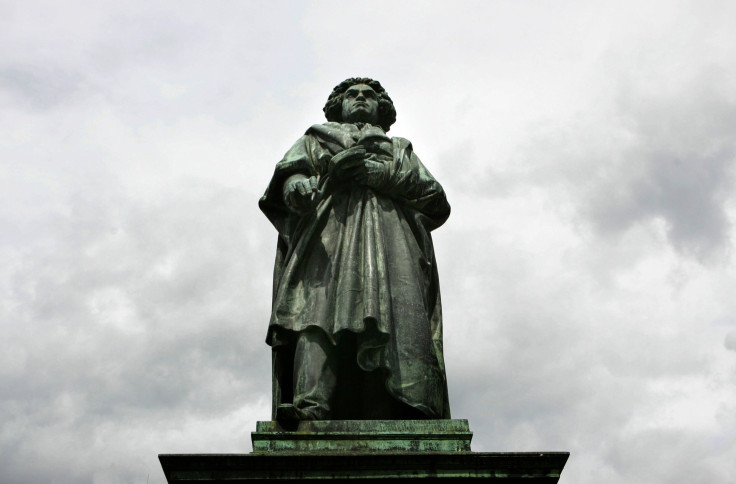Beethoven’s Death Anniversary: Facts, Music, Life, Popular Tunes, Inspiration From One Of The Most Influential Composers In History

Ludwig van Beethoven, one of the most influential composers in history, died 188 years ago on March 26. Popular in modern times for writing familiar tunes such as “Ode to Joy,” he was a prolific composer whose vast array of works bridged the gap between the Classical and Romantic eras in music, yet his influence still resonates today. But what made him so great?
A musical prodigy, Beethoven was born in Bonn, Germany, in December 1770 -- or so we think, because the exact date remains unknown, and even the year is sometimes disputed. It’s possible Beethoven’s father maintained his son was born in 1772 merely to make the talented child appear even younger (and thus even more gifted) than he actually was, according to Classic FM.
As a young boy, Beethoven played the violin and was excellent at improvisation. The earliest known musical piece Beethoven composed dates to 1782, when he was probably 12 years old. The work encompassing nine variations for piano in C minor is supposedly incredibly difficult to play. He was also a fine pianist: When he was in his early 20s, he played for the nobility of Vienna in their homes.
The fact that Beethoven began to go deaf around the age of 25 did not ultimately prevent him from writing music, although one quotation attributed to him suggests he found it highly discouraging at times:
“How great was the humiliation when one who stood beside me heard the distant sound of a shepherd’s pipe, and I heard nothing; or heard the shepherd singing, and I heard nothing. Such experiences brought me to the verge of despair; but little more and I should have put an end to my life. Art, art alone deterred me.”
Beethoven nonetheless went on to compose works that have become central to the classical-music canon today.
He gave us well-known tunes such as “Ode to Joy” (the theme from his Symphony No. 9) and “Fur Elise,” popularized by ice-cream trucks and ringtones around the world, but there’s much, much more to his music than these familiar melodies. He wrote string quartets and symphonies, sonatas and concertos, and his works are often categorized into three major periods, based on when they were written: early, middle and late. His middle works are considered highly emotional, his late works genius, intensely complex and utterly beautiful. Beethoven wrote just one opera, “Fidelio.”
In the decades before his death in 1827, Beethoven lived a private, quiet life in Vienna, traveling occasionally to other parts of Europe. He was unmarried, and supposedly developed an obsessive relationship with his nephew, Karl. Some have speculated that he was an alcoholic -- which may have contributed to his death at the age of 57.
Beethoven’s symphonies and chamber-music pieces are still enjoyed in concert halls all over the world, while his influence is alive and well in other musical areas as well. His “Moonlight Sonata” influenced the Beatles’ song “Because,” while rapper Nas sampled “Fur Elise” for his song “I Can.” As a tribute to the composer, here is a taste of his genius, taken from his “Sonata Pathetique,” which in parts sounds practically like a lullaby:
© Copyright IBTimes 2024. All rights reserved.






















